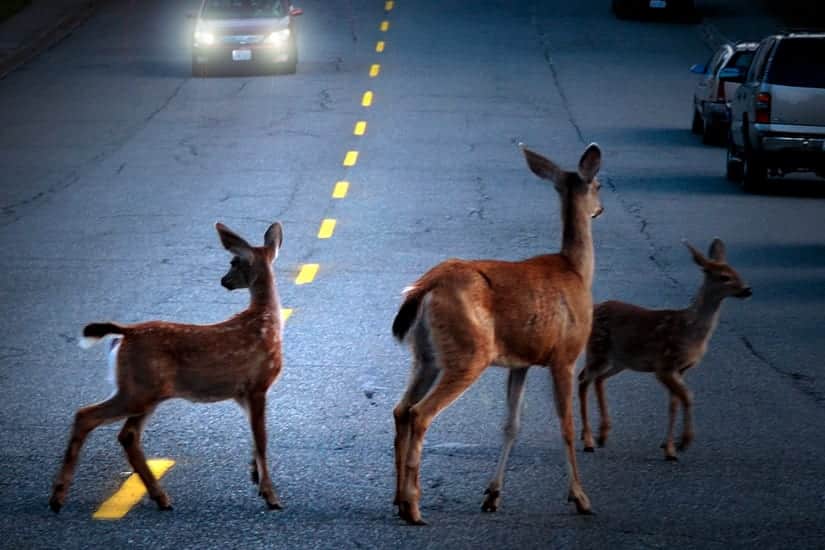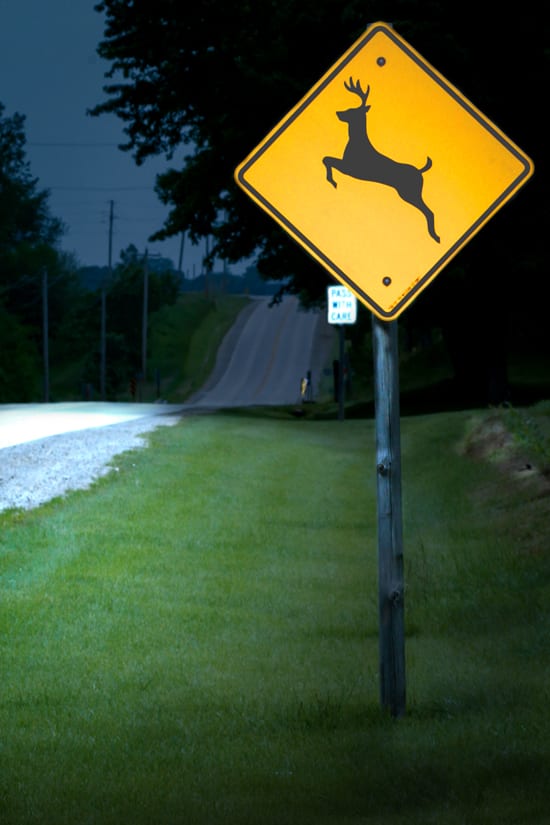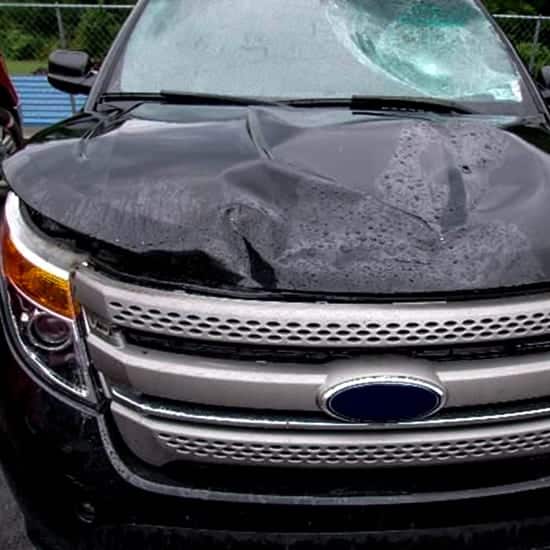Half of all deer accidents happen in the fall, and November is the most likely month. Here are a few tips on how to avoid a collision.

It’s autumn, which means that along with beautiful foliage, Virginia’s deer — about 85,000 of them! — are out in full force. Fall is mating season and the most active time of year for white-tail deer, so we can expect to see more road crossings and a heightened potential for car accidents involving these animals. Each year about 450 Virginians are injured and an average of 3 people are killed in deer accidents, and around half of those accidents happen during October, November, and December.
Deer are most active at dawn and dusk, times of day when many of us are on the road commuting to and from work — especially this time of year, with the shortening days and, in just a few weeks, the end of daylight saving time. Considering all of this, it’s no surprise that November is the most common month for deer accidents. Here are a few tips for decreasing your risk of hitting a deer the next time you’re out on the road.

Be especially careful at dawn and dusk. These are the most active times of day for deer, and also when many of us are in our cars rushing to or from work. Slow down and keep a close eye on the sides of the road, where deer may be difficult to spot in the low light of early morning or evening.
If you see a deer crossing the road up ahead, slow way down and be prepared to stop. Female deer frequently travel in groups, so there may be more than one animal crossing the road.
If you see a VDOT deer-crossing warning sign, keep your eyes peeled. Deer tend to cross roads repeatedly in the same places, usually between areas of cover, and this is where you’ll often see deer-crossing signage.
Do not swerve to miss a deer, even though this may seem counter-intuitive. It’s safer to brake and stay in your lane — because if you swerve, you increase your chances of losing control of your vehicle and having an accident that’s even more catastrophic than colliding with a deer. Swerving increases the risk of crossing into another lane, hitting an oncoming vehicle, or leaving the road altogether and crashing into a tree, all of which would likely result in an accident more serious than hitting a deer.
As far as deer deterrents go, there is some evidence that flashing your lights might help discourage deer from crossing into the roadway, so it couldn’t hurt to try if you’ve spotted an animal. Deer whistles, on the other hand, have not shown any success in keeping deer away from roads. Even bumper-mounted ultrasonic deer whistles that claim to be audible to animals but not humans haven’t proven to be effective.
If There is an Accident
Caution and vigilance go a long way toward avoiding accidents, but sometimes there’s no time for a driver to react to a deer in the road, and the animal is hit. It can happen to anyone, as it did earlier this year to our own Seth Lindberg when he hit a deer in Loudoun County.
If you’ve been in an accident with a deer or other large animal, you should follow much of the same advice as you would in any car accident. If you can, move your vehicle to the shoulder of the road and turn on your flashers. Call 9-1-1 if you or anyone else is hurt, or if the situation is an emergency in any other way. If personal and roadway safety have not been compromised, then you should use a non-emergency line to report the collision. It is in fact the law that you must immediately report any crash that has killed a large animal — like a deer or bear — to a game warden or another law enforcement officer.
Some people may wonder whether they can keep the animal that’s been killed in the accident, and while it’s not the ideal way to bag game, the answer is yes. Virginia law provides that a driver may keep the animal for their own use, if it’s been properly reported and after the attending officer has given the person a possession certificate.

Auto Insurance and Damage to Your Vehicle
Deer accidents can result in a range of damage, from minor fender-bender dents to a totaled vehicle. State Farm reports that over a recent 1-year period in Virginia, there were more than 59,000 claims made for collisions with deer, with damage to vehicles averaging more than $4,000. For more on how to be sure you’re adequately covered prior to an incident, and how to navigate an insurance claim after an animal strike, read ‘Taking My Own Accident Advice’ about Burnett & Williams’ attorney Seth Lindburg’s recent encounter with a deer. We hope that you never need this advice, but if you do, we are here to help.
Burnett & Williams specializes in litigation for serious accidents. If you’ve been hurt in an accident and need representation or advice, call us for a free consultation, (703) 777-1650 or get in touch right here.